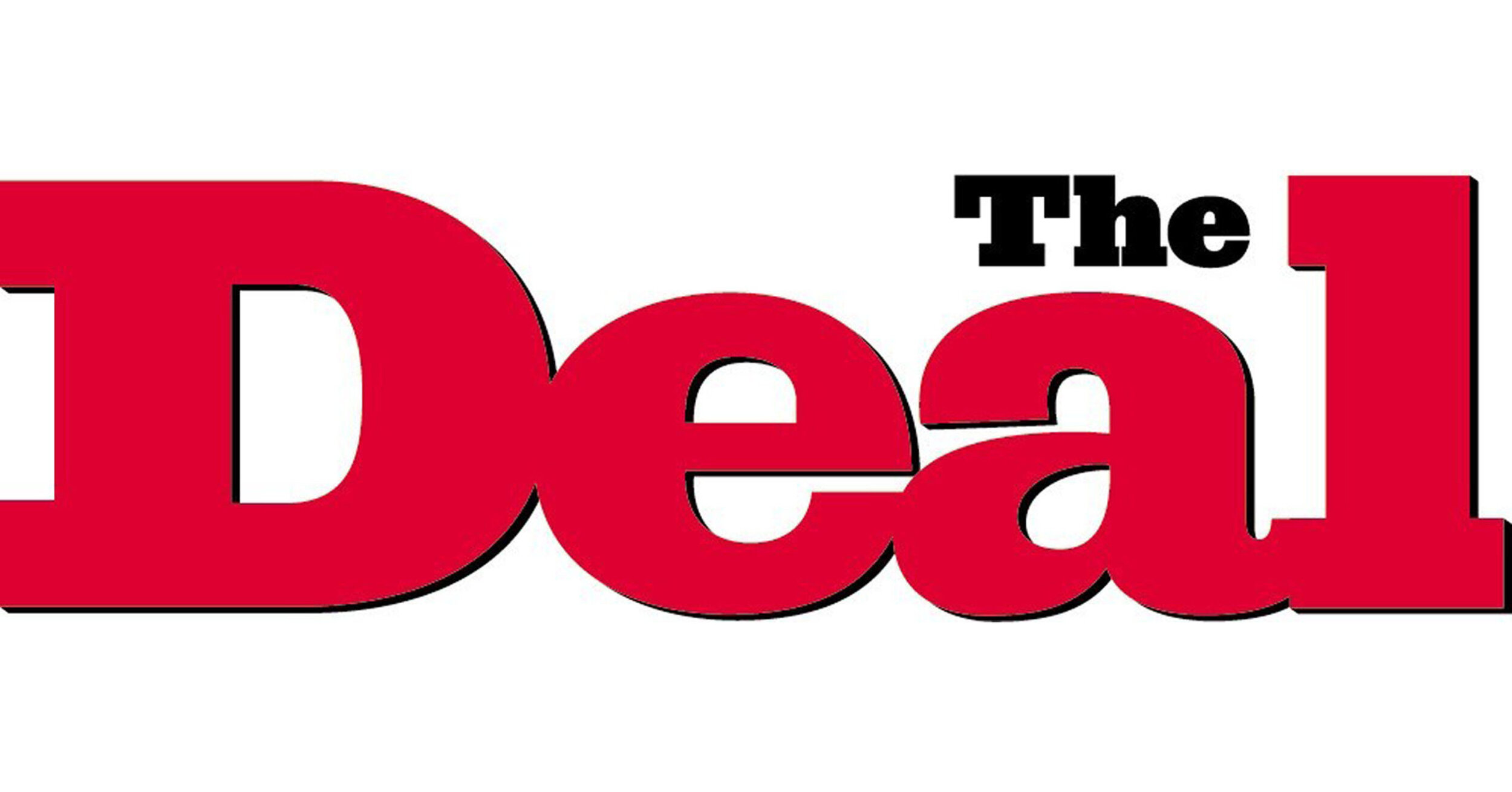News: Restaurant Dealmaking Makes Comeback
With the restaurant industry beginning to recover from the pandemic, strategic buyers and financial sponsors are back at the table for what's shaping up to be a record year in dealmaking.
By Nikitha Sattiraju
September 01, 2021 10:09 AM
A year after the pandemic brought the hospitality industry to a standstill, restaurant week is in full swing in multiple cities thanks to vaccine rollouts and the sector is on a rebound despite fears over the spread of the Delta variant in the U.S.
While many restaurant businesses ended up in bankruptcy, the ones that survived pivoted or leaned into off-premise sales from drive-throughs and take-out, shutdown locations and cut back on staff to make it to the other side. As restaurants return to a measure of normalcy, financial sponsors and strategic buyers are back at the table for what's shaping up to be a record year in dealmaking.
FAT Brands Inc. (FAT), for instance, on Tuesday, Aug. 31, agreed to acquire casual dinning chain Twin Peaks from Garnett Station Partners for $300 million, which followed the $442 million acquisition of Global Franchise Group LLC and its five quick-service restaurant brands in June, while private equity firm High Bluff Capital Partners LLC acquired quick-service chicken restaurant chain Cajun Operating Co., or Church’s Chicken, for an undisclosed amount earlier this month.
Industry sources attribute the M&A frenzy to the rebound in restaurant performance— particularly that of quick-service restaurants — and a pent-up demand for transactions in the sector after a drop in dealmaking in 2020.
“It has been a hallmark year,” said Kevin Burke, managing director at Trinity Capital LLC. “I think we are going to see a continued surge in restaurant transactions throughout the balance of the year, heavily skewed towards quick-service restaurants."
Quick-service and fast-casual restaurants, which fared better than full-service restaurants that depend on customers on-premise dining, have been prime targets for buyers, as evidenced by Inspire Brands Inc.’s $11.3 billion acquisition of Dunkin' Brands Inc. in November. The quick-service segment, which in addition to Dunkin’, includes familiar names such as Chipotle Mexican Grill Inc. (CMG), McDonald's Corp. (MCD) and Yum! Brands Inc.'s (YUM) Taco Bell Corp., won out during the pandemic due to its existing infrastructure, easy-to-carry foods and family meals.
Throughout the pandemic, many investors — particularly those without large restaurant portfolios or a long history of investing in the space — haven’t been willing to engage in transactions involving full-service or on-premise experiential concepts, said Susan Miller, co-founder and partner at Morgan Kingston Advisors. These “tourist investors” as Miller calls them, have instead been chasing quick-service restaurants for deals at record valuations, driven mainly by traditional debt providers narrowing their scope to large franchise systems with national footprints.
Scalability Commands Top Dollar
While some buyers are looking to acquire assets at a discounted price, others are in search of growth concepts or strategic acquisitions to complement their existing portfolio, driving up competition for — and valuations of — a limited inventory of businesses.
“You've got to either pay up or miss out on deals,” said Aaron Allen of restaurant consulting firm Aaron Allen & Associates.
The median enterprise-value-to-Ebitda multiple for restaurant targets in the U.S. stood at 10.5 times Ebitda in 2019, according to a report. In comparison, Inspire Brands paid 21 times Dunkin's Ebitda for the past 12 months before the deal was announced. Goldman Sachs Merchant Banking, meanwhile, which acquired a majority stake in Zaxby’s SPE Franchisor LLC in November, reportedly paid 18 to 20 times the casual fried chicken concept's Ebitda of $100 million to $125 million, valuing the company at approximately $2 billion, according to a report from Duff &Phelps.
But while valuations remain healthy, they can vary dramatically based on size, segment, region, growth trajectory, business model and other factors, Miller said.
In addition to FAT Brands, other strategic buyers, including franchisees, such as SPB Hospitality LLC, Ampex Brands LLC and Yadav Enterprises Inc. have been acquisitive this year.
SPB, an affiliate of Softbank Group Corp.-backed Fortress Investment Group LLC, bought restaurateur J. Alexander's Holdings Inc. for $220 million in cash in July. Ampex, a Yum! Brands franchisee, bought Au Bon Pain for an undisclosed amount from Panera Bread Co. in June, while Yadav Enterprises, Jack in the Box Inc.'s (JACK)largest franchisee, agreed to acquire fast-casual Mexican restaurant Taco Cabana for$85 million from Fiesta Restaurant Group Inc. (FRGI) in July.
PE on Both Sides of the Table
Private equity, eager to deploy the large amount of capital it's been sitting on after record fundraising this past year, has been capturing its share of deals as well, with Thompson Street Capital Partners acquiring fast-casual chain Freddy’s Frozen Custard & Steakburgers for an undisclosed amount in March and Artemis Lane Partners buying Lee's Famous Recipe Chicken in June, also for an undisclosed amount.
Several restaurant operators, particularly in the lower middle market, that made it through the worst of the pandemic flush with cash on their balance sheets from government relief are also considering a sale as valuations tick up.
“They’re thinking, 'It’s nice to have all this money and no debt, maybe we should just sell the whole thing,’” Allen said. “The M&A that will end up happening between now and the end of the year will be equal to the last few years combined.”
Many businesses, concerned over the potential doubling of long-term capital gains tax from 20% to 40% in January 2022, are also rushing to sell before the end of the year.
Some larger quick-service restaurants also have filed for an initial public offering orgone public in recent months. TSG Consumer Partners LLC-backed Dutch Bros. Coffee and salad chain Sweetgreen Inc., for instance, are among those planning to go public while doughnut chain Krispy Kreme Doughnuts Inc. (DNUT) returned to public markets in July.
The IPO window for the restaurant industry opens for certain periods of time every few years, according to Rahul Aggarwal , a partner at Brentwood Associates.
There’s a feeling in the industry that it’s at a “precipice for a new opening of an IPO window for great restaurant companies to access the public markets,” Aggarwal said.
Hopes for On-Premise Concepts
As in-person dining makes a comeback and many parts of the country benefit from a relatively normal summer compared with last year, investors are now showing more enthusiasm for on-premise experiences such as full-service concepts as well, though lenders remain very cautious, industry sources said.
"Many folks see the light at the end of the tunnel and recognize that the pandemic is not permanent," Miller said. "The new normal is not sitting in your home."
Meanwhile, distress investors have been “chomping at the bits” throughout the pandemic searching for discounted assets, Miller said. Well-capitalized operators had similarly hoped to find second-generation real estate deals like those seen in the Great Recession. But to date, both groups haven’t had much luck, Miller said.
Though the industry saw restaurant businesses changing hands as part of distress deals, it wasn’t on the scale anticipated at the start of the pandemic, mainly due to the government stimulus that helped operators stay afloat, sources said.
However some restaurant companies, such as traditional casual or family dining franchisees, burdened with royalty payments on top of rising operating costs, may find themselves distressed as government relief programs run their course, Miller said.
Similarly, independent chains that failed to adapt operationally, or that have been ill-equipped to navigate the pandemic due in part to antiquated financial systems and technology, may likely end up selling out of distress or exhaustion, particularly as they struggle to staff up amid the labor crunch, she added.
The rise in commodity prices will also add to the pressure on struggling restaurants, Trinity Capital’s Burke said.
“There's been a real parting of the Red Sea; there's going to be those who survive and those that don't,” Burke said.


